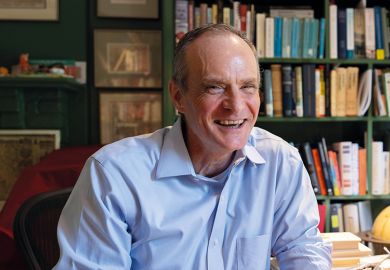From behind his desk at Mexico's finance ministry, the bespectacled and bookish Francisco Gil D!az may not resemble the Latin American revolutionary of popular imagination. But Gil D!az was a leading ideologue in the vanguard of a silent revolution during the 1980s that ushered in a new era of market reform and free trade. His appointment two years ago by President Vicente Fox, after the National Action Party overturned 71 years of single-party rule, was a striking signal that the neoliberal orthodoxy was here to stay.
The incarnation of a new generation of Americanised economists who stormed Mexico's policy-making ramparts after the 1982 debt crisis, Gil D!az had been the country's original Chicago Boy since the 1970s, instrumental in germinating a new conventional wisdom in Mexican economics. His ascendance is a key sub-plot of Sarah Babb's captivating history, which traces how economists abandoned a nationalist model cherished by leftwing academics at the public National Autonomous University of Mexico (Unam) for the international free-market consensus advocated by US-trained technocrats wired into the University of Chicago.
For a generation, Unam had churned out Marxist economists who could slip into the country's burgeoning bureaucracy. A business-inspired economic counter-culture arose, nurtured by conservatives at Mexico's central bank, and found its home in the elite private Autonomous Technological Institute (Itam). In the late 1960s, radicalised by dependency theory, Unam threw up the barricades against "imperialist" US ideas. Itam, meanwhile, embraced Chicago school monetarism, which viewed central government meddling in monetary policy with horror and eschewed free-spending Cambridge-style developmentalism. Itam became Chicago's forward command post in Mexico, a relationship consummated by Gil D!az, himself a Chicago alumnus who became Itam's director of economics in 1973. The role of Itam as a receptacle for neoclassical ideas mirrored a process that had occurred in Chile.
Neoliberalism found an audience in the 1970s when populist presidents pursued debt-led growth to patch up cracks in Mexico's model of state-led development. Hostility between factions of foreign-trained economists came to a head with the 1982 debt crisis, which confirmed the triumph of the neoliberals. The need to manage debt and shrink the state had put a premium on the technical financial skills developed at Itam: it made sense to promote economists who spoke the language of the US Treasury and the International Monetary Fund. Subsequent market reforms were pushed by an intellectual coalition led by figureheads such as Gil D!az, and between 1984 and 1986 Mexico began to dismantle protectionism and privatise.
Babb's insights will strike a chord with Latin Americanists wrestling anew with the merits of neoliberal economics, which have neither achieved the spectacular growth rates of the state-led "Mexican miracle" nor resolved pressing questions of inequality. She illuminates how the retreat from national policies and pressures to adopt universal policy-making norms have depoliticised the debate over the form economic development should take. The drama unfolding in Argentina reveals how unpredictable the consequences of this can be.
Gavin O'Toole teaches politics at Queen Mary, University of London, and is a journalist.
Managing Mexico: Economists from Nationalism to Neoliberalism
Author - Sarah Babb
ISBN - 0 691 07483 6
Publisher - Princeton University Press
Price - £24.95
Pages - 295
Register to continue
Why register?
- Registration is free and only takes a moment
- Once registered, you can read 3 articles a month
- Sign up for our newsletter
Subscribe
Or subscribe for unlimited access to:
- Unlimited access to news, views, insights & reviews
- Digital editions
- Digital access to THE’s university and college rankings analysis
Already registered or a current subscriber?



